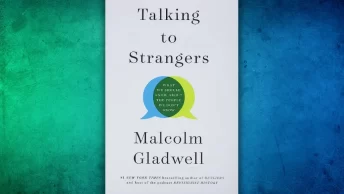Stop Walking on Eggshells: Taking Your Life Back When Someone You Care About Has Borderline Personality Disorder PDF is a book written by Paul T. Mason and Randi Kreger, and published in 1998 by New Harbinger Publications. It has become a best-selling book worldwide, with over one million copies sold as of 2020.
The book explores the implications of living with or being close to someone who has borderline personality disorder (BPD). It provides an overview of the condition, as well as advice and strategies for effectively coping with BPD behaviors.
The book has been widely praised by critics, with some referring to it as “an invaluable resource for family members looking for guidance and understanding.” It has also been recommended by mental health professionals and organizations, such as the National Alliance on Mental Illness. Stop Walking on Eggshells is available in a variety of formats, including paperback, Kindle e-book, and audiobook. It has also been translated into multiple languages, including French and German.
Table of Contents
Stop Walking on Eggshells Summary
The book starts by introducing the concept of Borderline Personality Disorder (BPD), a mental illness that affects how an individual interacts with others and manages strong emotions. It goes on to discuss how those affected by BPD often express their emotional pain in destructive ways, including aggression, manipulation, self-harm, intense emotional outbursts, suicidal behavior, and more.
The authors then outline the core features of living with BPD: unstable relationships, extreme emotional instability and identity issues, impulsive actions, destructive patterns in interpersonal relationships, and turbulences in self-image.
Next, Mason and Kreger discuss the traits that make someone prone to developing BPD, such as a history of physical or emotional abuse, abandonment, neglect, or manipulation. They also emphasize the importance of understanding why individuals develop BPD in order to help them better manage it and their emotions.
Details of Stop Walking on Eggshells Book
| Book | Stop Walking on Eggshells |
| Author | Randi Kreger, Paul T. Mason |
| Original language | English |
| Originally published | 1998 |
| Category | Self Help |
| Publisher | New Harbinger Publications |
| Total Pages | 258 |
| Format | PDF, ePub |
Multiple Languages Editions of Stop Walking on Eggshells Book
Stop Walking on Eggshells book has been translated into multiple languages and is available in many different nations. This book has been translated into Spanish, German, French, Japanese, Polish, Chinese (simplified and traditional), and Italian.
| Book Editions | Check Now |
|---|---|
| English | Check Price |
| Chinese | Check Price |
About the Author
Paul T. Mason and Randi Kreger are the authors of Stop Walking on Eggshells: Taking Your Life Back When Someone You Care About Has Borderline Personality Disorder. Paul T. Mason is a psychologist and veteran in the field of borderline personality disorder, with over 25 years of experience treating clients with BPD.

He has lectured nationally and internationally and published several articles related to BPD. He has been a professor at the Human Services Program at Sinclair Community College in Ohio since 1993 and is currently an adjunct faculty member of the Psychology Department at Wright State University.
Randi Kreger is the founder of BPD Central, an online resource for people with BPD, their families, and friends as well as professionals working with them. She is the author of two books about BPD, Stop Walking on Eggshells: Taking Your Life Back When Someone You Care About Has Borderline Personality Disorder and The Stop Walking on Eggshells Workbook.
The book provides a comprehensive overview of BPD and how it affects family members and other close contacts. It emphasizes understanding and learning effective communication skills to help cope with the disorder.
Stop Walking on Eggshells PDF Free Download
Click on the download button below to get a pdf file of the Stop Walking on Eggshells book.
Similar Books to Stop Walking on Eggshells Book
- The Essential Family Guide to Borderline Personality Disorder: New Tools and Techniques to Stop Walking on Eggshells by Randi Kreger
- Living with Someone Who’s Living with BPD: 8 Simple Steps for supporting a loved one while taking care of yourself by Shari Manning
- The Borderline Personality Disorder Survival Guide: Everything You Need To Know About Living With BPD by Alexander L. Chapman and Kim L. Gratz
- I Hate You–Don’t Leave Me: Understanding the Borderline Personality by Jerold J. Kreisman and Hal Straus
- The Stop Walking on Eggshells Workbook: Practical Strategies for Living with Someone Who Has Borderline Personality Disorder by Paul T. Mason, Randi Kreger, and James A. Chu
- Healing from Borderline Personality Disorder: My Journey Out of Hell Through Dialectical Behavior Therapy by Debbie Corso
- The High Conflict Couple: A Dialectical Behavior Therapy Guide to Finding Peace, Intimacy, and Validation by Alan Fruzzetti and Marsha
FAQs(Frequently Asked Questions)
What is the book Stop Walking on Eggshells about?
Stop Walking on Eggshells is a groundbreaking book written by Paul T. Mason and Randi Kreger that provides readers with vital information about how to cope with someone with Borderline Personality Disorder (BPD).
What does Stop Walking on Eggshells teach?
The book teaches readers how to recognize the signs of BPD in themselves or someone they care about, as well as provides helpful strategies for dealing with the challenges that come with living with or in close proximity to someone who has BPD.
How long does it take to read the Stop Walking on Eggshells pdf?
The book is about 300 pages long and should take the average reader a few days to read, depending on their reading speed.
Who is the target audience of the Stop Walking on Eggshells book?
The target audience of Stop Walking on Eggshells is anyone who knows someone with BPD or is living with someone with BPD.
Is Stop Walking on Eggshells book worth reading?
Stop Walking on Eggshells is an incredibly insightful book, written by experts in the field of BPD.







